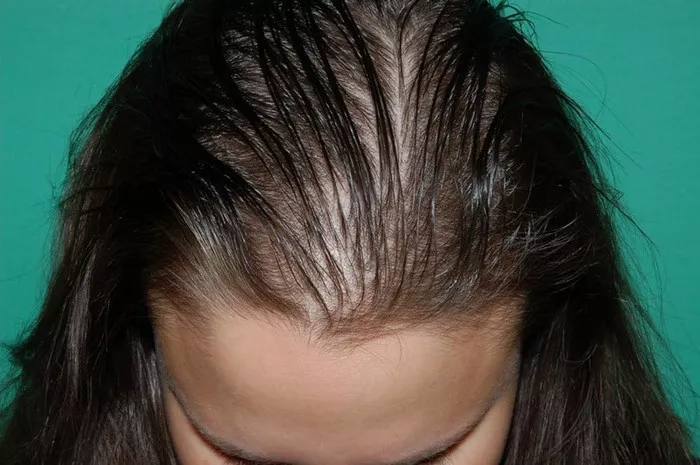Hair loss is a common concern that can stem from a variety of factors. In this article, we aim to address a question that often causes worry: Can hair loss be a sign of cancer? Understanding the nuances of this topic can help individuals gain clarity and alleviate concerns about the potential connection between hair loss and cancer.
Types of Hair Loss
Several types of hair loss exist:
- Androgenetic Alopecia: Common pattern baldness affecting both men and women.
- Alopecia Areata: Immune system attacks hair follicles, leading to patches of hair loss.
- Telogen Effluvium: Stress or shock disrupts hair growth cycles, causing excessive shedding.
- Anagen Effluvium: Hair loss due to chemotherapy or radiation.
- Traction Alopecia: Tight hairstyles cause gradual hair loss.
- Scarring Alopecia: Inflammation damages hair follicles, leaving scars.
- Trichotillomania: Compulsive hair pulling leads to hair loss.
- Female and Male Pattern Baldness: Gradual hair thinning primarily at the crown or temples.
- Cicatricial Alopecia: Permanent hair loss due to scarring of hair follicles.
- Hormonal Hair Loss: Hormone imbalances cause hair thinning.
Identifying the type aids in proper diagnosis and treatment planning.
Hair Loss and Cancer Treatments
Hair loss is a common side effect of cancer treatments like chemotherapy and radiation. These treatments target rapidly dividing cells, including hair follicles, leading to hair loss on the scalp, eyebrows, eyelashes, and body. The extent of hair loss varies depending on the drugs and doses used. Not all chemotherapy drugs cause hair loss. Hair typically starts to regrow after treatment ends, though it may initially be different in texture and color. Using scalp cooling caps during chemotherapy may help reduce hair loss by constricting blood vessels in the scalp and limiting the drug’s impact on hair follicles.
Other Signs and Symptoms of Cancer:
It’s crucial to note that hair loss alone is not typically a primary or definitive sign of cancer. If you’re concerned about the possibility of cancer, it’s important to be aware of other potential symptoms:
1. Unexplained Weight Loss:
Sudden and unexplained weight loss could be a sign of an underlying health issue, including some forms of cancer.
2. Fatigue:
Persistent fatigue that doesn’t improve with rest might warrant medical attention, as it could be associated with various health conditions.
3. Changes in Skin:
Certain types of skin changes, such as darkening or reddening, can sometimes be related to underlying health concerns.
How to Treat Hair Loss Caused by Cancer?
Hair loss caused by cancer treatments can be distressing, but there are strategies to manage and cope with it:
1. Scalp Cooling Caps:
Consider using scalp cooling caps during chemotherapy to minimize blood flow to the scalp, reducing the impact of chemotherapy on hair follicles.
2. Gentle Hair Care:
Use mild, sulfate-free shampoos and avoid hot water. Pat hair dry instead of rubbing vigorously.
3. Wigs and Head Coverings:
Wigs, scarves, hats, and turbans can help you feel more comfortable and confident during hair loss.
4. Scalp Care:
Keep your scalp moisturized and protected from the sun. Use gentle oils or moisturizers.
5. Eyebrows and Eyelashes:
Use makeup techniques to draw on eyebrows and use mascara for eyelashes.
6. Diet and Supplements:
Maintain a balanced diet rich in nutrients that support hair health, with your doctor’s guidance.
7. Post-Treatment Care:
Be patient; hair often starts to regrow a few weeks after treatment ends.
Remember, it’s important to consult your healthcare team for guidance on managing hair loss during cancer treatment.
See Also: When Does Postpartum Hair Loss Start: What You Need To Know
Conclusion:
In conclusion, while hair loss can be distressing, it is not usually a direct sign of cancer. Instead, it’s important to consider the type of hair loss, other accompanying symptoms, and individual medical history. If you have concerns about hair loss and its potential connection to cancer, seeking guidance from medical professionals will provide the clarity and support you need during this uncertain time. Remember that early detection and professional medical advice are essential for addressing any health-related concerns.


